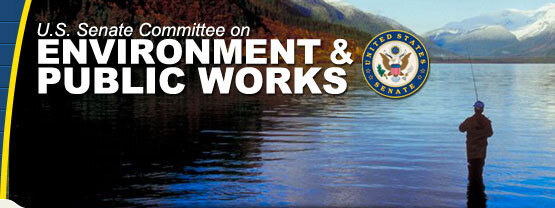United States Congressional Environmental Committees
The United States Congress is responsible for drafting and passing laws in the United States. The Congress has two chambers: the House of Representatives and the Senate. To pass a law, a majority of both the House and the Senate must vote to support the proposed law (a bill). The President must then sign the bill into law or veto it.
Between the House of Representatives and the Senate, there are four committees devoted to environmental protection and regulation: two in the Senate, and two in the House of Representatives.
These committees are responsible for drafting legislation to govern matters related to the environment, energy, and natural resources. After the committees complete their draft bills, the proposed law is then presented to the full Senate and House.
Scroll down for more information.
United States Senate Committees
The Senate Committee on Energy and Natural Resources is a committee within the United States Senate. The Committee’s primary responsibilities include legislation related to: energy resources and development, including regulation, conservation, strategic petroleum reserves and appliance standards; nuclear energy; public lands and their renewable resources; surface mining, Federal coal, oil, and gas, other mineral leasing; territories and insular possessions; and water resources.
Click here to learn more.
The Senate Committee on the Environment and Public Works is a committee within the United States Senate. The Committee’s primary responsibilities include passing legislation related to the nation’s environmental air, water, fisheries, and oceanic quality and preservation, as well as control and maintenance of public buildings and infrastructure.
Click here to learn more.
United States House Of Representatives Committees
The Committee on Natural Resources is a Congressional committee of the United States House of Representatives. Among other objectives, the Committee passes legislation relating to conservation of National Parks and public lands, energy and mineral resources, and management of waters, oceans, and wildlife.
Click here to learn more.
The House Committee on Energy and Commerce has the broadest jurisdiction of any authorizing committee in Congress. Environmentally, it passes legislation related to national energy policy, renewable energy and conservation, and other environmental protection matters.
Click here to learn more.





